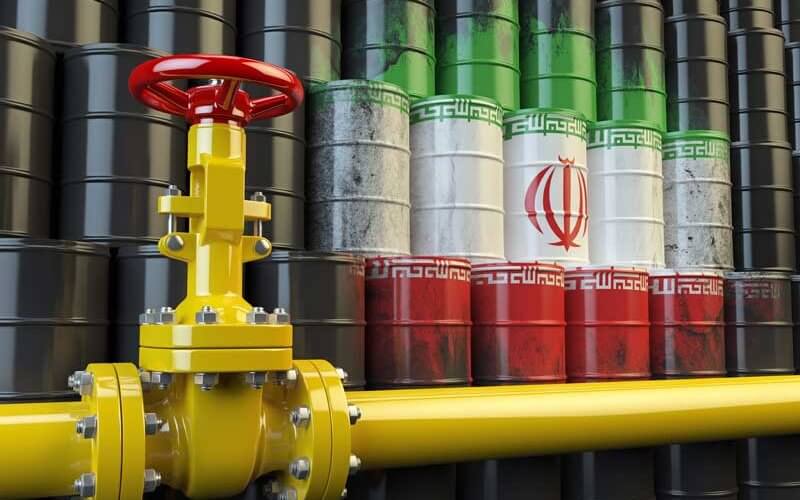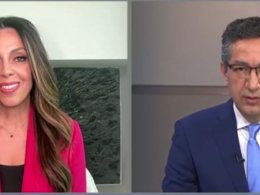Newly leaked documents showcased various strategies employed by the Islamic Republic of Iran to bypass United States sanctions, which were exposed in a hack of the Iran parliament.
The papers disclosed that Tehran's parliament collaborated with specific Iranian entities and individuals to help them conduct trade activities while hiding their identities and affiliations from international regulatory authorities. These efforts involved altering purchase documents and customs regulations and providing banking incentives and foreign currency support to mitigate the impacts of sanctions.
“The Islamic Republic's oil revenue—almost all of which comes from China—funds its brutal repression of the Woman, Life, Freedom movement and violent anti-American extremist groups abroad,” said Jerry Canto, an analyst at United Against Nuclear Iran (UANI).
“That is why the regime employs the deceptive practices disclosed in the leaks and why it incentivizes key players to enter the industry or continue with their business operations despite sanctions and other risks,” he added.
According to Khaneh Mellat News Agency, Uprising till Overthrow, was the group that claimed that they successfully penetrated 600 primary servers belonging to various parliamentary departments, including the commission, main chamber, parliamentary assistance, parliament bank, and other administrative-related servers.
One of the many internal communications and confidential documents disclosed on Tuesday was a 14-page letter detailing various strategies for circumventing sanctions and backing individuals and entities under sanction, which were deliberated during a meeting of Iran's Sanctions Counteraction Headquarters in August of last year.
Mohammad Mirmohammadi, the Deputy for Economic and Technological Affairs of the Secretariat of the Supreme National Security Council, signed a confidential letter addressed to Mohsen Rezaei, the Secretary of the Supreme Council of Economic Coordination of the Branches of Government.
Copies of the letter were sent to the heads of Iran's three branches of government, including the president, the chief justice, and the Parliament Speaker.
The Sanctions Counteraction Headquarters' creation occurred in 2018 following Washington's departure from the 2015 Iran nuclear agreement.
Es'haq Jahangiri, the First Vice President of the Rouhani administration, revealed the creation of this headquarters, emphasizing that under the altered circumstances, national leaders cannot yield to the conditions and needed to devise strategies to facilitate oil sales and meet the country's requirements.
According to the disclosed letter, the headquarters mandated that individuals subject to sanctions could alter their identity to sustain their operations. Additionally, such individuals would receive various advantages, including financial incentives in banking, insurance, tax, and customs domains.
Another resolution was approved to provide protective and security coverage for all managers, agents, and individuals involved in neutralizing sanctions to safeguard them from consequences.
The letter discusses providing legal and judicial assistance domestically and internationally to assist individuals facing retaliation for attempting to avoid sanctions. It also covers strategies for circumventing restrictions on importing sanctioned and dual-use goods. The letter also addresses practices like refusing to provide or accept mismatched certificates of origin from non-Iranian companies, altering documents with names different from the buyer, and modifying purchase agreement details.
Using overseas middlemen to handle sanctioned goods became a prevalent practice for Iranian officials, where customs authorities were allowed to alter declarations to prevent the divulgence of information concerning imported items. Since 1979, the regime in Tehran has used its economic and financial resources to sponsor its spread of terrorism in the Middle East, providing military and financial goods to terrorist proxies in Yemen, Lebanon, Iraq, and Syria.
The latest reporting in Tehran also comes as new reports reveal that American, British, and Australian universities collaborated with the Sharif University of Technology in Tehran, an Iranian university with ties close to the Islamic Republic and its military, on drone technology research.
“The United States must enforce sanctions—rather than merely introducing new ones—not only exposing those practices but taking all measures necessary to ensure that the regime cannot indemnify losses or damages incurred,” Canto told The Foreign Desk.
Related Story: U.S. Sanctions Iranian Officials Over Alleged Plots to Assassinate U.S. Officials










